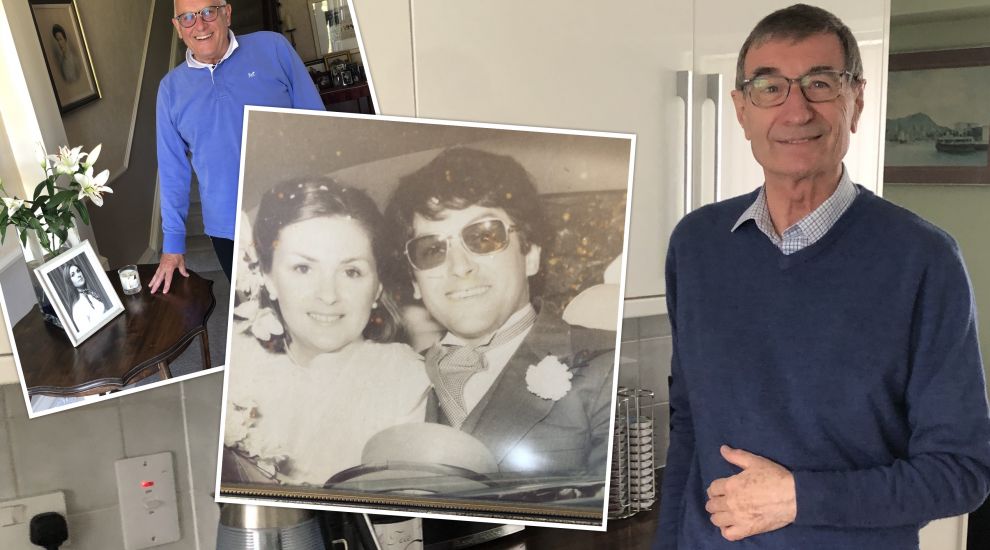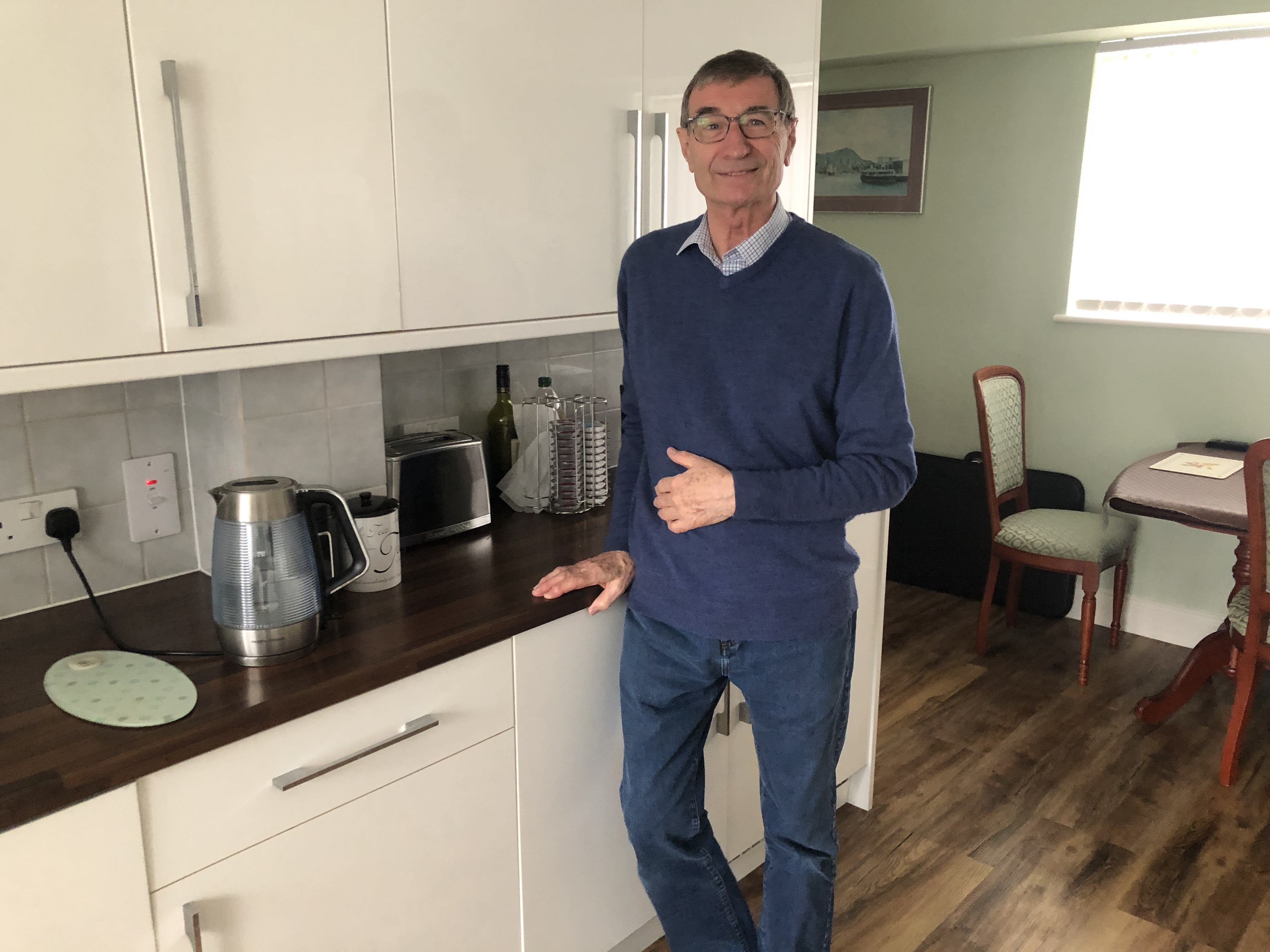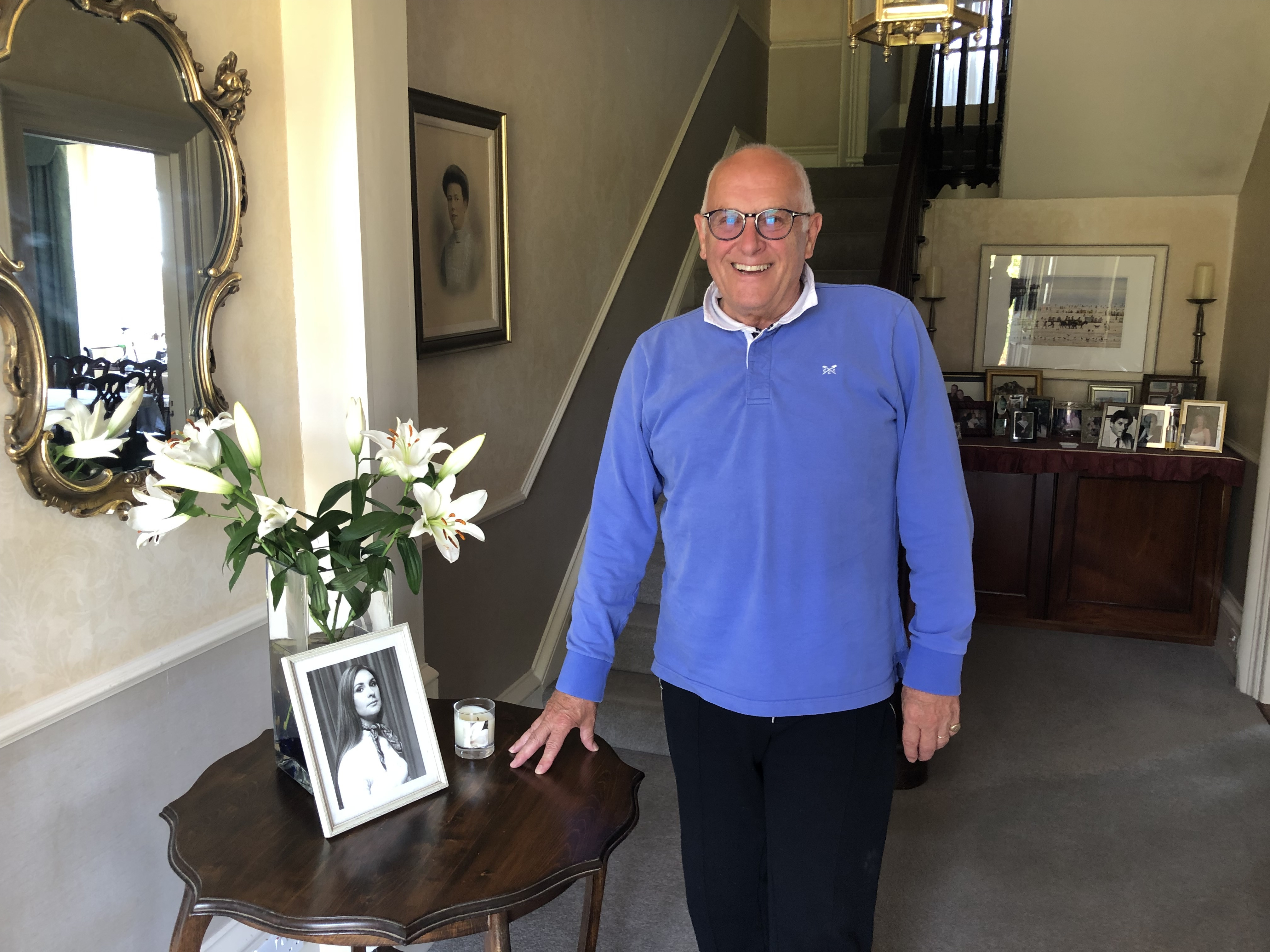


An islander diagnosed with dementia just two years ago, and another who spent eight years caring for his wife until she passed away last year, have opened up about their experiences to highlight why Jersey needs a strategy.
After more than a decade of campaigning by charities, the island is expected to have its first strategy for dementia by the end of this year.
Dementia Jersey is aware of 1,600 people with dementia and it is estimated that for every person living with dementia there can be up to seven people, such as family and friends, who can be affected whether that be due to emotional, practical, or physical impacts.
Recent figures have also emphasised the long-known fact that a greater percentage of the population will be older in the next 20 years, with the dependency ratio expected to fall from 1.9 people of working age for every non-working person to 1.4 by 2040.
This means that not only is the 1,600 number likely to increase but so will the challenge of funding support for islanders with dementia.
Against this backdrop, Health Minister Karen Wilson has committed to work with Dementia Jersey to develop a strategy.
Giving an update, the charity's Interim Chief Executive Wendy Buckley said that 520 people had responded to a survey which Dementia Jersey launched in March to help inform the strategy.
The charity also spoke to 52 people directly in a series of sessions which included a mix of people with dementia, carers, independent/charitable sector staff, and health and social care professionals.
"The strategy is progressing well and is expected to be published in the last quarter of this year," she said.
But what sort of issues should the strategy address? Express spoke to two islanders who have both been impacted by the condition to find out their views...

Pictured: Allan Johnson said the diagnosis "came as a heck of a blow".
Allan Johnson was diagnosed with a form of Alzheimer's in 2021, when he was in his early 70s.
Despite lapses of memory, the retired trust director remains cogent and articulate, and the drugs he takes has successfully stabilised his Alzheimer’s. He continues to drive, with an annual assessment.
Since learning that he had ‘mild cognitive impairment’ – which he said “came as a heck of a blow” – Mr Johnson has joined several groups organised by Dementia Jersey, to keep active and meet people facing similar challenges.
He is also clear on the need for a Dementia Strategy in Jersey.
“There are probably lots of people walking around today with early stages of Alzheimer’s who may not have got a diagnosis. I am 75 now and was diagnosed in my early 70s. What probably needs to happen is that everyone who reaches 70 has an assessment.
“I think that is where the system is falling down, and why a clear strategy is needed.”
Mr Johnson also said that there needed to be better awareness of the support available.
“My wife passed away in 2009 and the last thing I want to do is sit here for five days a week looking at the walls,” he said. “One of my occupational therapists asked if I had heard about The Meeting Place Project, which is run by Dementia Jersey.
“These involve varied sessions that provide an opportunity to share experiences and talk with other people in similar situations.
“I saw that the St. Clement meeting each Friday morning was just down the road. I see other sufferers; we do puzzles, play card games and have a lot of banter.
“We play simple games like Play Your Cards Right, but everyone is smiling, laughing and clapping; it is great and I will continue to go. It also gives you perspective; some people are, unfortunately, a lot worse off than me.”
Talking about his own diagnosis, Mr Johnson said: “It had all started a couple of years before when, according to my daughters, I started asking them to repeat things and asking how I use my iPad. From my perspective, if I could get an answer from them, that was the end of it, but from their perspective, it seemed to get worse.
“I went to my GP, who referred me to Dr Juan Melendez at Memory Assessment and in June 2021 I had a meeting with him, and that’s when he said: ‘your brain is shrinking, and this is the result of that’.
“As I said, it came as a hell of a shock to me. I was then referred to Dr Emma House, who is a clinical psychologist and carried out a series of tests. I was also assessed by Occupational Therapy.”
Dementia is not only a condition Mr Johnson lives with but it is also is a cornerstone of a new social network, which includes a Harbour walking group, which starts and finishes from Cooper’s Coffee, and pétanque at St. Martin’s Methodist Chapel.
Separately, he has also become a member of the St. Clement Community Support Team.
“We all pull together; we are all in the same boat,” he said. “There are likely to be a lot more islanders with dementia in the future, so it is important that everyone is on the same page, and that’s why a strategy is an important base to work from.”

Pictured: Peter Germain at his home in St Martin, next to a photo of his late wife Jennie.
Retired teacher Peter Germain cared for his wife Jennie for eight years before she passed away last year, aged 76. He was her main carer during that time and remains a strong supporter of Dementia Jersey, sharing his experience with other carers.
He is clear why a Dementia Strategy is needed.
“You have people from all facets of dementia: people who care, people who know about dementia, and people who should know about dementia,” he said.
“For example, how many people know how to deal with dementia? What happens if Mrs Jones goes into M&S and starts saying silly things? Do the staff there know what to do? Should people with dementia perhaps need to wear a badge to identify their condition?
“The emergency services are trained but what about other agencies? What happens, for instance, if someone starts getting aggressive in church?”
“Having a plan to educate people should be all part of the strategy. Carers, of course, need full training, too, and there needs to be the funding in place to support that.”
He added that the strategy – which he has been involved in drafting – will also promote early diagnosis and quicker follow-ups.
“The sooner you get diagnosed, the sooner you can join a support group, and that early interaction makes things whole lot better.”
Mr Germain said: “Dementia Jersey has grown full speed and I go to a variety of meetings. One recently, for example, focused on the importance of not drinking alcohol. That was very crucial to me and my wife because if Jennie drank alcohol with her medication, it would have a negative effect.
“We would go for lunch at Chateau La Chaire sometimes and I would buy non-alcoholic wine and drop it down in the morning. The waiters would serve it to her with all their usual politeness and enthusiasm. She never knew it was non-alcoholic, but she would enjoy it as much as everyone else.
“One of the things I tell carers is that you should not be frightened of telling white lies because you must never get the tension up with someone with dementia. It upsets them too much.
“It is also important not to change their routine, because that also upsets them. If they go somewhere unfamiliar, they can withdraw.”
Another piece of advice, added Mr Germain, is that carers should take the time to think now about what they might need in the future.
“Find out what Long Term Care you might be eligible for, look at what agencies can support you, and always read the small print,” he said.
Although Mr Germain dedicated the best part of a decade to caring for his wife as her condition deteriorated, he said there were times when her effervescence shone through.
He recalled that when it was assessed that she needed to go to Beech Ward at St. Saviour’s Hospital to reset her levels of medication, she asked the ambulance driver collecting her if the vehicle had blue lights and a siren.

Pictured: Peter and Jennie on their wedding day.
He said: “She turned to him and said: ‘Driver, please put them on because if I am going to leave, I am going to leave in style’.
"She still had her bubbles and humour, even if the brain was all muddled.”
Mr Germain said that his wife’s final three years had been spent being very well looked after at Cheval Roc care home above Bonne Nuit.
“It is very important to get the surroundings right,” he said. “All these bits of advice might sound obvious but things are rarely straightforward, which is why there needs to be an overall plan at an island level.”
Comments
Comments on this story express the views of the commentator only, not Bailiwick Publishing. We are unable to guarantee the accuracy of any of those comments.